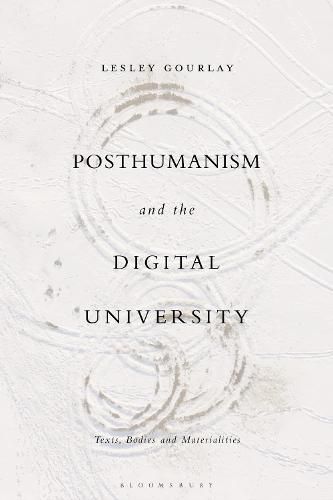Readings Newsletter
Become a Readings Member to make your shopping experience even easier.
Sign in or sign up for free!
You’re not far away from qualifying for FREE standard shipping within Australia
You’ve qualified for FREE standard shipping within Australia
The cart is loading…






It is a commonplace in educational policy and theory to claim that digital technology has ‘transformed’ the university, the nature of learning and even the essence of what it means to be a scholar or a student. However, these claims have not always been based on strong research evidence. What are students and scholars actually doing in the day-to-day life of the digital university?
This book examines in detail how the world of the digital interacts with texts, artefacts, devices and humans, in the contemporary university setting. Weaving together perspectives from a range of thinkers and disciplinary sources, Lesley Gourlay draws on ideas from posthuman and new materialist theory in particular, to open up our understanding about how digital knowledge practices operate. She proposes that digital engagement in the university should not be regarded as ‘virtual’ or disembodied, but instead may be understood as a complex set of entanglements of the body, texts and material artefacts, making a case that agency and the ways in which knowledge emerges should be regarded as ‘more than human’.
$9.00 standard shipping within Australia
FREE standard shipping within Australia for orders over $100.00
Express & International shipping calculated at checkout
It is a commonplace in educational policy and theory to claim that digital technology has ‘transformed’ the university, the nature of learning and even the essence of what it means to be a scholar or a student. However, these claims have not always been based on strong research evidence. What are students and scholars actually doing in the day-to-day life of the digital university?
This book examines in detail how the world of the digital interacts with texts, artefacts, devices and humans, in the contemporary university setting. Weaving together perspectives from a range of thinkers and disciplinary sources, Lesley Gourlay draws on ideas from posthuman and new materialist theory in particular, to open up our understanding about how digital knowledge practices operate. She proposes that digital engagement in the university should not be regarded as ‘virtual’ or disembodied, but instead may be understood as a complex set of entanglements of the body, texts and material artefacts, making a case that agency and the ways in which knowledge emerges should be regarded as ‘more than human’.